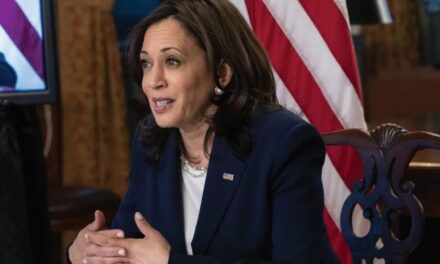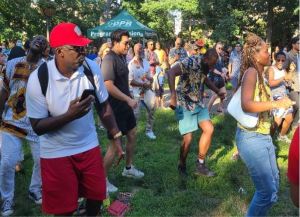By Deborah Bailey
AFRO Contributing Editor
Members of the Maryland General Assembly’s Prince George’s County delegation kicked off the summer celebrating hard fought victories won in the Annapolis Statehouse with a town hall session held at Bowie State University on June 11.

County residents came to the state’s oldest HBCU to hear the most significant legislative successes of the county’s 31 state legislators and the impact these new laws will have on close to 950,000 residents living in Maryland’s second most populous county.
“Collectively, the senators and delegates of Prince George’s County sponsored 350 bills with 120 signed into law by our governor,” said State Sen. Ron Watson (D-23) of the record number of legislative advances made by the county’s legislative team.
Watson explained to the audience that significant legislation was passed in a tough year for the state of Maryland.
“What this delegation was able to achieve was nothing short of amazing,” said Angela Alsobrooks, Prince George’s County executive and candidate for U.S. Senate.
“We knew that we were facing significant budgetary challenges,” Alsobrooks said, and explained to the audience that the delegation was able to secure funding for $198 million of capital requests for the county.
“Every single project that we sought funding for received some level of funding,” Alsobrooks added. New capital funding projects secured by the Prince George’s County delegation include $16.8 million for a corridor pavilion in Lottsford, $5 million for a new film studio and soundstage in Fairmont Heights, and $7.5 million for a redevelopment project for the Prince George’s County Hospital in Cheverly, Md.
Funding has also been secured for the continued expansion of the transit hub in New Carrollton, as well as the controversial Blue Line Corridor project that will extend Metro service to Oxon Hill and National Harbor. The project has caused concern among some residents, who have expressed dismay that execution of the Blue Line Project is being done without ongoing community input.
Lawmakers could only highlight a small portion of the more than 100 bills that were signed into law by Gov. Wes Moore. Among the legislative highlights discussed are the following initiatives:
Housing: HB 538 increases housing density and allows multi-family homes to be built in communities that have been previously reserved for single-family dwellings. HB 599 is a renter’s rights bill limiting security deposits to one-month’s rent and providing other rights to rental tenants.
Transportation: Local governments in Prince George’s County only will have electronic enforcement of stop signs near schools and a prohibition against exhibition driving.
Education: HB 1441 creates easier access for pre-K teachers to enter the profession. HB 945 simplifies requirements for teacher certification. In higher education, the delegation passed legislation to ensure legacy preferences were not allowed in public higher education, and the “Freedom to Read Act” will combat book banning in state libraries.
Cannabis: Legislation requiring Prince George’s County’s 22 licensing dispensaries. “If we did not create this requirement in legislation, we would have a proliferation of criminal activity and operators in the county,” said Del. Kris Valderrama (D-26).
“The key after today is for Prince George’s County residents to stay involved,” said Del. Nicole Williams (D-22), chair of the Prince George’s County delegation, reflecting on the town hall meeting.
“It’s really the public’s input that we need,” Williams said, noting that the Maryland General Assembly has retained on-line participation in hearings after the end of the Covid 19 pandemic. She added, “It makes a difference when Prince George’s County residents sign up for hearings and tell us publicly what you need.”
Williams said her only wish is for more time to highlight the delegate and senatorial scholarships available to Maryland students for post-secondary study in every Prince George’s County district. Maryland residents who plan to pursue full-time (12 or more undergraduate credits or nine graduate credit hours per semester) or part-time (six to 11 undergraduate or six to eight graduate credit hours) are eligible to apply and can contact their state delegate or senator.
The post Pr. George’s County’s Annapolis delegation celebrates at town hall event, 120 bills signed into law appeared first on AFRO American Newspapers.











